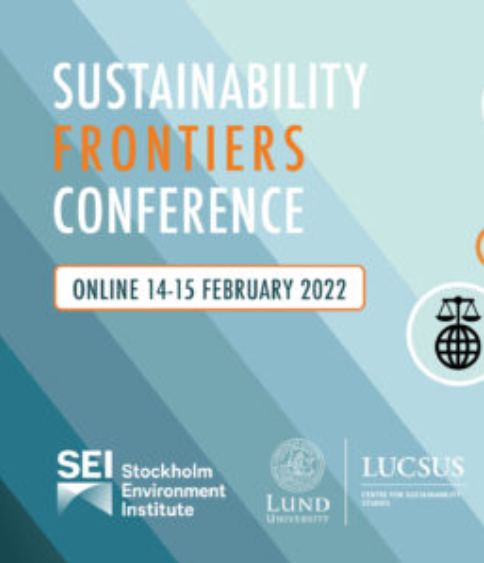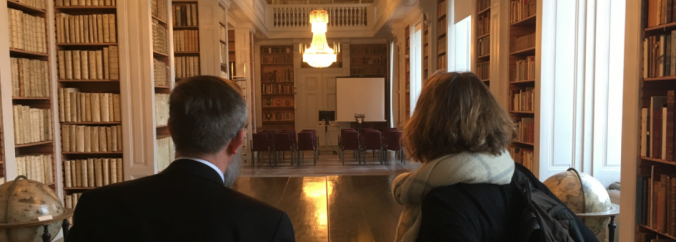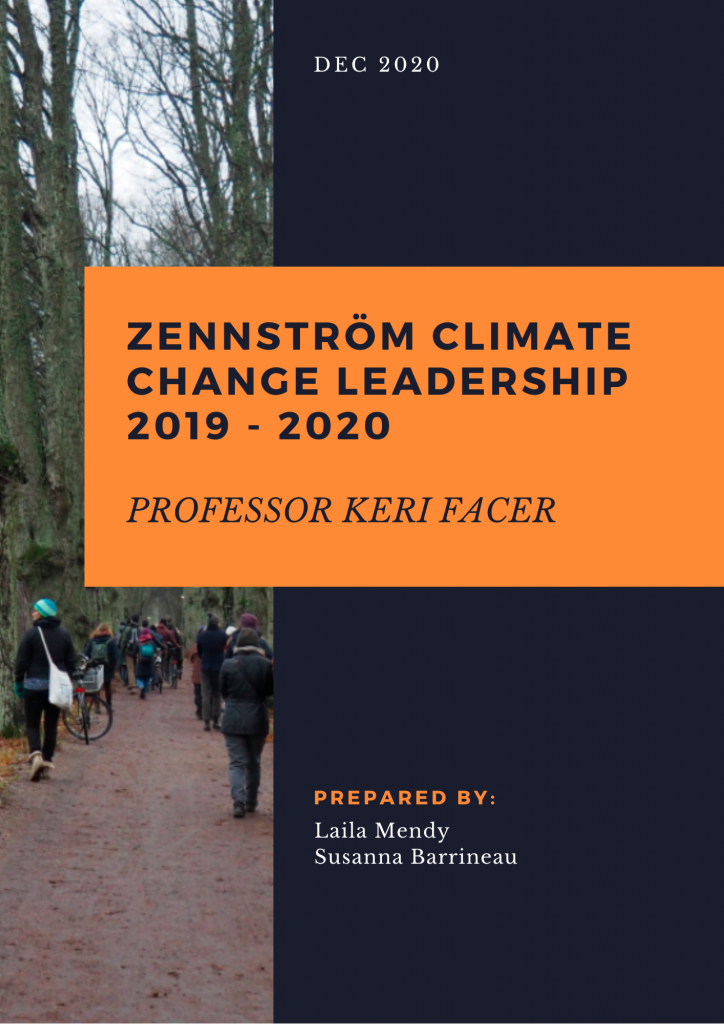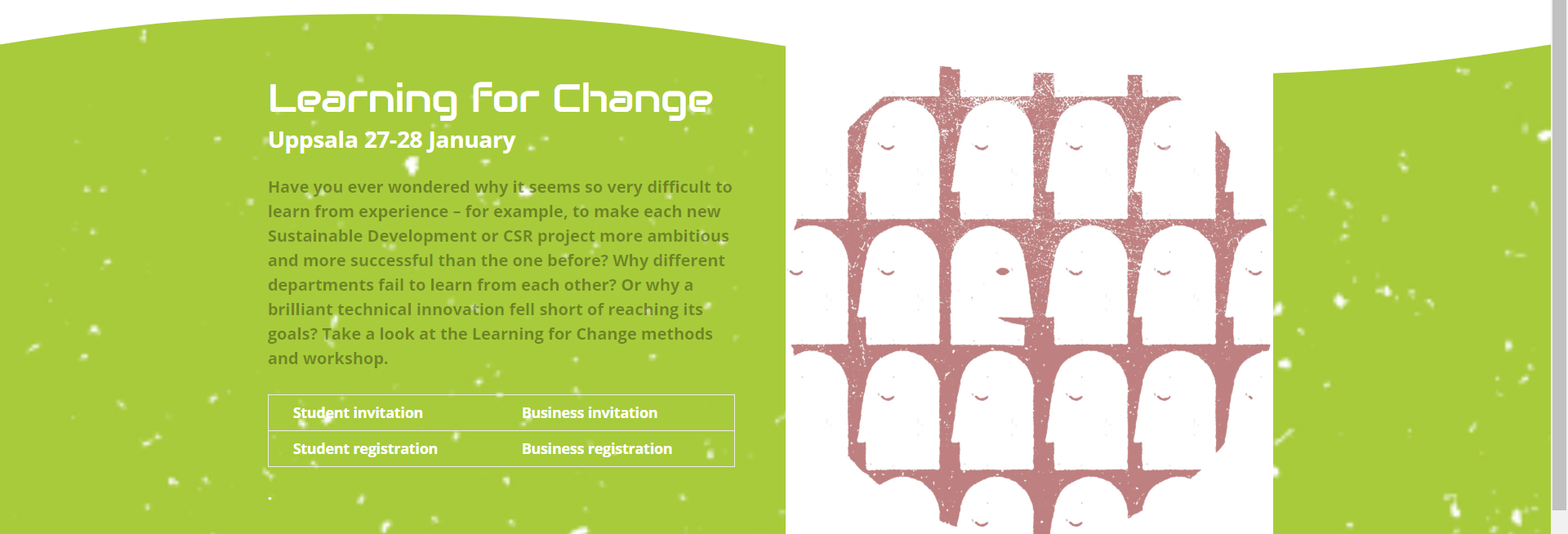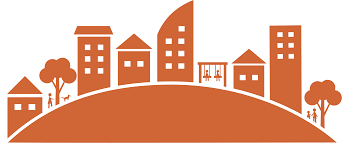This is the final in a short blog series written by Laila Mendy about the Sustainability Frontiers conference.
Matthew Fielding moderated the final session between William Clark, Åsa Persson, Emily Boyd and Somya Joshi. The aim of the conversation was to discuss the five themes of the conference in relation to a recent publication by Clark and co-author Harley, which reviewed the first generation of sustainability science research. You can read this paper here.
Clark began with a short presentation of his work, which suggested that a core red-thread in sustainability science was nature-society interactions, which he described as existing within intertwined co-evolving systems. It is a solutions driven science, he said, where the goals of the research is not only to understand the interactions but to explore how this science and those understandings may be used to advance the diverse, contested and socially-determined goals of sustainability.
Another common thread, he found, was the issue of resources, emerging as the ultimate determinants of sustainable development. Sustainable development is measured by whether the base of resources are increasing or dwindling. Connecting resources and goals of sustainability science indicates processes of consumption and production, primarily towards the good life. However these processes are not operating without the agendas of the agents, actors, individuals, communities, firms, states and so on, also pushing certain directionalities. Though a belated entry into the sustainability sciences, these issues can be turned towards questions of power and how distributions of costs and benefits of nature-society interactions occur unequally.
These interests point back towards the institutions studying them and how the work they do might help or hinder these systems and often, Clark suggested, the outcomes of these institutional activities hold up the status quo and benefits incumbents. However, sustainability sciences are all working in complex adaptive systems that are shaped by persistent heterogeneity and novelty. Sadly this means that scientists can not predict them particularly well, which leads to the question about what useful advice sustainability science has to offer.
Well, it does have much to offer in terms of operational capacities, according to Clark. These are categorised below as the capacities to:
- Govern effectively
- Measure progress
- Promote Equity
- Adapt to shocks
- Transform development pathways
- Link knowledge with action
Each of these capacities are interlinked and intersect with the conference themes, Clark claimed, though hesitating on the Degrowth theme, which seemed to him more prescriptive than opening up discovery on the issue of economy and environmental impact.
Persson had several comments on the paper, based on what had been heard from the past two days. She first queried the idea of capacities in terms of by and for whom. The question comes from much of the discussion had in the first session on Decolonisation: who needs capacities? who already has them? and whose capacities are not counted or visible? This, she said, comes from the tendency in sustainability science to look at “we” in recommendations without specificity. It was time to be honest over responsibilities and the roles that we have.
Related to that, she was missing the concept of leadership in this synthesis. Looking back to Stockholm 50 years ago, individuals did play a role: leadership was considered as very important. Is this an issue sustainability fields are forgetting? That said, she pointed to ongoing projects into the role of influences in mobilising change – a new form of modern leadership, perhaps?
In response to Clark’s hesitation to fit the Degrowth theme into his synthesis, Persson asked whether economics was a part of sustainability or a different field. She acknowledged the work of donut economics, regenerative and care economics and how to bring them in to sustainability science.
Finally, she commented on the word “transformation”, which is on everyone’s lips these days. What is the risk of transformation becoming a new floating empty signifier not unlike sustainable development? And to what extent does the scale or transformation lead to delay? The challenge might appear to be so big so that responsibility can be diffused.
Boyd reminded the panel that much of the discussion over the past two days did not necessarily probe new areas, but rather were the result of decades of challenging issues and constraints within the practises of sustainability science. This was further challenged by how sustainability was being mainstreamed across the university and instrumentalised in businesses and governments. She echoed a point from the decolonial discussion: these issues can not become check boxes with a measurable set of indicators, but are more reflexive processes of inquiry.
Such a challenge might, she suggested, require a coming out of the academic ivory towers in response to the changing world. AI, geopolitics, polarisation and other forms of resistances are part of transformations and represent varied forms of values and knowledges and the new contexts within which science-making occurs. To what extent, then, are the processes in sustainability reinforcing inequalities by not accounting for these?
This conference, according to Boyd, has been an exploration from the Swedish perspective. In her presentation she highlighted some important questions that emerged within the themes of the frontiers of sustainability science. Listed below:
- Decolonisation: unlearning the what and how, bringing in care ethics and the material aspects of what we study;
- Resistance: the idea of presence and making familiar the unfamiliar;
- Degrowth: how to approach the issue of decoupling;
- Digitalisations: The new stories, fragmentations and speeds of change;
- Imaginaries: Mindsets, structures, and moving beyond existing models of creativity to open up beyond the scientific silo.
Somya Joshi finished the panel with a short presentation explaining that “the joys of going last is that most of what you want to say has been said already.” For her, however, the most provocative theme appeared to be inequity. Whether in the Decolonial themed conversations, or in Degrowth, or the Imaginaries session, many questioned resource extraction through an anthropocentric mindset. Therefore, sustainability science must question the idea of resource.
A comment came to Clark from Joshi: According to the paper, at the heart of human capacity is innovation. Joshi, however challenges this in the context of digitalisation. Lowering the threshold to participation through social media, for example, is fantastic in one level. But the risks of misinformation, or powerful elites instrumentalising these technologies are too large to ignore. Who is wielding these tools? Who is weaponising them?
For Joshi, then, this concerned knowledge – and structures of knowing – and required a shift to nurturing empathy and action. She echoed a question posed in an earlier workshop: How can imagined collective futures turn into something people could collaboratively work towards.
Read more on page two by clicking below.

